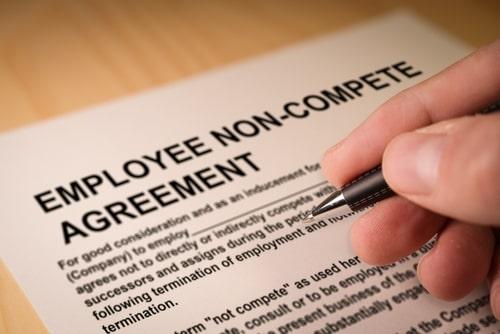203-661-6000
170 Mason Street, Greenwich, CT 06830
What Are Reasonable Restrictions in Non-Compete Agreements?
 In today's competitive economy, businesses often need to take steps to protect their interests and prevent unfair competition. Non-compete agreements are one tool that can benefit employers. These restrictive covenants may be used in employment contracts or severance agreements, and they can make sure an employee will not be able to take actions that could negatively affect an employer. While non-compete agreements can protect an employer's confidential information and trade secrets, they can also limit employees' ability to work in their chosen fields. To ensure that these types of agreements will be enforceable, employers will need to understand what types of reasonable restrictions they may place on employees.
In today's competitive economy, businesses often need to take steps to protect their interests and prevent unfair competition. Non-compete agreements are one tool that can benefit employers. These restrictive covenants may be used in employment contracts or severance agreements, and they can make sure an employee will not be able to take actions that could negatively affect an employer. While non-compete agreements can protect an employer's confidential information and trade secrets, they can also limit employees' ability to work in their chosen fields. To ensure that these types of agreements will be enforceable, employers will need to understand what types of reasonable restrictions they may place on employees.
Enforceability of Non-Compete Agreements
A non-compete agreement may prevent an employee from working for an employer's direct competitors or from starting their own business that would compete with the employer. These restrictions may be necessary to ensure that an employee will not use the information they have learned about an employer's operations and business practices to engage in unfair competition. A non-compete agreement can prevent trade secrets from being shared with competitors while also ensuring that the investments an employer made in training an employee will not be in vain.
When using non-compete agreements, employers will need to make sure the terms of these contracts will be enforceable. An employee must be provided with consideration when signing an agreement. That is, the employee must receive something of value in return for agreeing to the restrictions. This consideration may include the salary and benefits an employee will receive after entering into an employment contract or the severance pay a person will receive when signing a severance agreement.
The enforceability of a non-compete agreement will also depend on whether the restrictions it puts in place are reasonable. In general, the restrictions should be limited to what is necessary to protect the employer's legitimate business interests. The primary factors in determining whether a non-compete agreement is reasonable are the length of time for which it is in effect, the geographical scope of the restrictions, and the scope of activities that are restricted.
The length of time a non-compete agreement may remain in effect will often depend on the type of job and the industry. In some industries, such as those which involve rapidly changing technology, a six-month or one-year restriction may be reasonable, while in other industries that are more established, a restriction may last for multiple years. The geographical scope of the restrictions should be reasonable as well. For example, if the employer operates solely within one state, it may not be reasonable to restrict an ex-employee from working in another state. Finally, the scope of activities that are restricted should be closely tailored to include only those activities that are necessary to protect the employer's legitimate business interests. Restrictions that would prevent a person from working at all within their chosen field are likely to be considered unreasonable.
Contact Our Greenwich, CT Non-Compete Agreement Lawyers
Non-compete agreements can provide essential protections for a business, but they need to be carefully drafted to ensure that they are not unfairly restrictive on employees. Employers should only include restrictions that are considered to be reasonable, and employees should be sure to understand how they will be affected by these types of agreements. At Ivey, Barnum & O'Mara, LLC, our New York employment law attorneys can provide guidance on how to address these issues, and we can represent both employers and employees in legal cases related to the enforcement of non-compete agreements. Contact our firm at 203-661-6000 to arrange a free consultation and learn how we can assist with these issues.
Sources:
https://legal.thomsonreuters.com/en/insights/articles/the-basics-of-non-compete-agreements
https://ag.ny.gov/sites/default/files/non-competes.pdf
https://www.investopedia.com/terms/n/noncompete-agreement.asp













